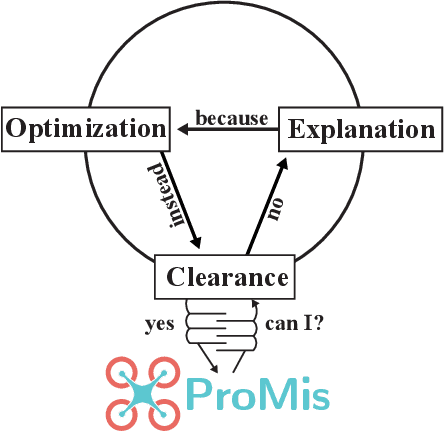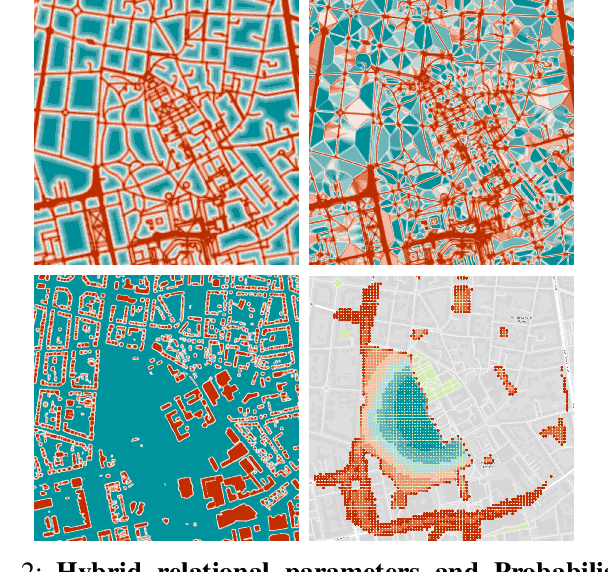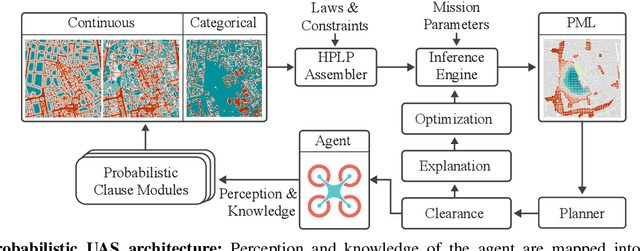Towards Probabilistic Clearance, Explanation and Optimization
Paper and Code
Jun 21, 2024



Employing Unmanned Aircraft Systems (UAS) beyond visual line of sight (BVLOS) is an endearing and challenging task. While UAS have the potential to significantly enhance today's logistics and emergency response capabilities, unmanned flying objects above the heads of unprotected pedestrians induce similarly significant safety risks. In this work, we make strides towards improved safety and legal compliance in applying UAS in two ways. First, we demonstrate navigation within the Probabilistic Mission Design (ProMis) framework. To this end, our approach translates Probabilistic Mission Landscapes (PML) into a navigation graph and derives a cost from the probability of complying with all underlying constraints. Second, we introduce the clearance, explanation, and optimization (CEO) cycle on top of ProMis by leveraging the declaratively encoded domain knowledge, legal requirements, and safety assertions to guide the mission design process. Based on inaccurate, crowd-sourced map data and a synthetic scenario, we illustrate the application and utility of our methods in UAS navigation.
 Add to Chrome
Add to Chrome Add to Firefox
Add to Firefox Add to Edge
Add to Edge